
The Rotunda of Thessaloniki: A Timeless Marvel
The Rotunda in Thessaloniki, Greece, is a mesmerizing blend of history, culture, and architectural brilliance. Originally built in 306 AD by the Roman Emperor Galerius, the Rotunda has served various purposes over the centuries, including a mausoleum, a Christian church, and an Ottoman mosque. Today, it stands as a testament to the city's rich and diverse heritage, drawing visitors from around the world. The Rotunda's massive circular structure, adorned with stunning mosaics and intricate designs, offers a glimpse into the artistic and architectural prowess of ancient times. As you step inside, you are greeted by an awe-inspiring interior, where the interplay of light and shadows creates a serene and almost mystical atmosphere. The Rotunda's towering dome, one of the largest of its kind in the world, adds to the grandeur and magnificence of this historical monument. Surrounding the Rotunda, the vibrant neighborhood is a perfect blend of old and new. Cobblestone streets, quaint cafes, and bustling markets offer a delightful experience for tourists. The area is home to several other historical landmarks, including the Arch of Galerius and the ancient city walls, making it a treasure trove for history enthusiasts. Whether you're a history buff, an architecture lover, or simply a curious traveler, the Rotunda and its surrounding neighborhood promise an unforgettable journey through time.
Local tips in Rotunda
- Wear comfortable shoes as the cobblestone streets can be uneven.
- Visit early in the morning to avoid crowds and enjoy a peaceful experience.
- Don't miss the nearby Arch of Galerius, another historical gem.
- Take a break at one of the local cafes to soak in the atmosphere.
- Bring a camera to capture the stunning mosaics and architectural details.
The Rotunda of Thessaloniki: A Timeless Marvel
The Rotunda in Thessaloniki, Greece, is a mesmerizing blend of history, culture, and architectural brilliance. Originally built in 306 AD by the Roman Emperor Galerius, the Rotunda has served various purposes over the centuries, including a mausoleum, a Christian church, and an Ottoman mosque. Today, it stands as a testament to the city's rich and diverse heritage, drawing visitors from around the world. The Rotunda's massive circular structure, adorned with stunning mosaics and intricate designs, offers a glimpse into the artistic and architectural prowess of ancient times. As you step inside, you are greeted by an awe-inspiring interior, where the interplay of light and shadows creates a serene and almost mystical atmosphere. The Rotunda's towering dome, one of the largest of its kind in the world, adds to the grandeur and magnificence of this historical monument. Surrounding the Rotunda, the vibrant neighborhood is a perfect blend of old and new. Cobblestone streets, quaint cafes, and bustling markets offer a delightful experience for tourists. The area is home to several other historical landmarks, including the Arch of Galerius and the ancient city walls, making it a treasure trove for history enthusiasts. Whether you're a history buff, an architecture lover, or simply a curious traveler, the Rotunda and its surrounding neighborhood promise an unforgettable journey through time.
Iconic landmarks you can’t miss
Aristotelous Square
Thessaloniki's iconic waterfront square, blending neoclassical architecture with a lively atmosphere, perfect for cultural events and seaside strolls.

Arch of Galerius
A triumphal arch in Thessaloniki, Greece, commemorating a Roman emperor's victory and showcasing intricate marble carvings and historical significance.
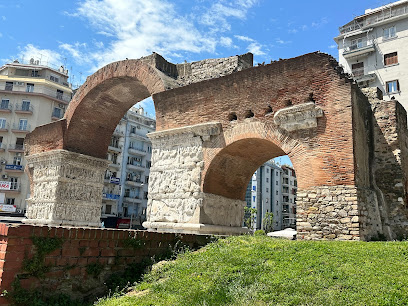
Rotunda
Explore Thessaloniki's ancient Rotunda: a Roman monument transformed into a church and mosque, adorned with stunning Byzantine mosaics. A UNESCO World Heritage Site.
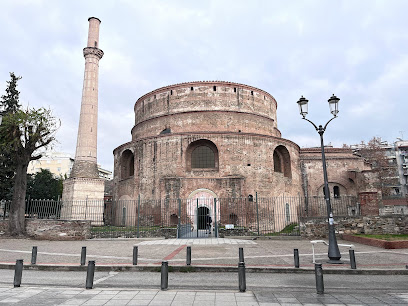
Statue of Eleftherios Venizelos
A marble tribute to Eleftherios Venizelos, a key figure in modern Greek history, located on Thessaloniki's bustling Egnatia Street.
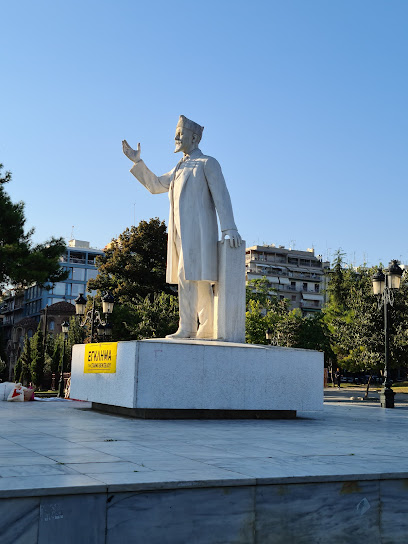
Ancient Agora Square
Explore Thessaloniki's Ancient Agora: A journey through Roman history, architecture, and culture in the heart of the city.
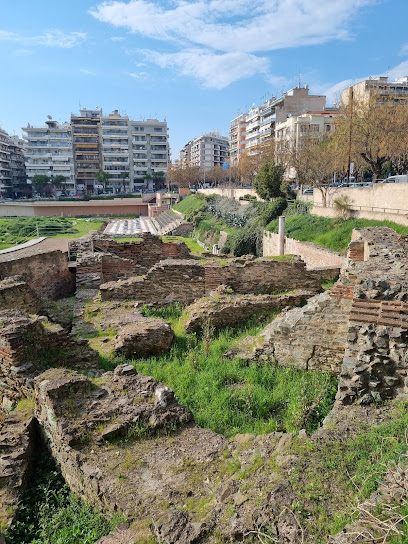
Palace of Galerius
Discover the ruins of the Palace of Galerius in Thessaloniki, a captivating blend of Roman history and Byzantine influence in the heart of the city.
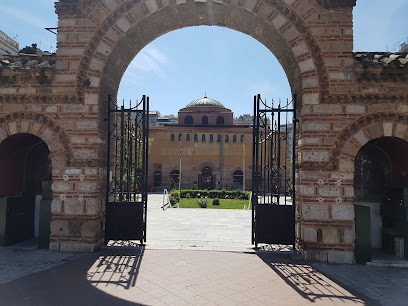
East Byzantine Walls of Thessaloniki
Explore the East Byzantine Walls of Thessaloniki: a journey through history with stunning panoramic views of the city and Thermaic Gulf.
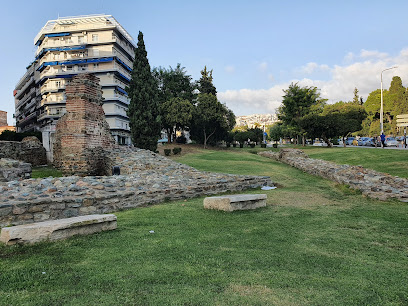
Apsidal Hall of the Galerian Complex
Step back in time at Thessaloniki's Apsidal Hall, a window into the grandeur of Emperor Galerius' Roman palace.
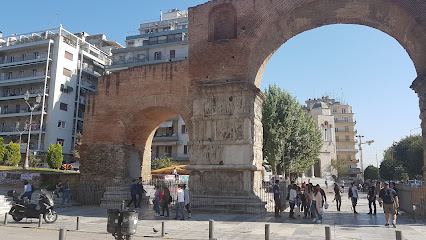
Basilica of the Galerian Complex
Explore the Basilica of the Galerian Complex in Thessaloniki, a historical landmark showcasing stunning Roman architecture and rich cultural heritage.
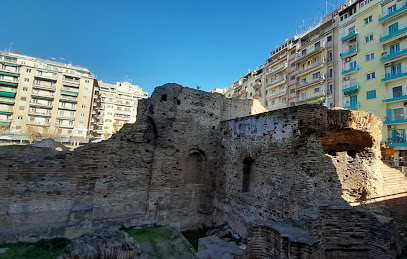
Athanasios Diakos Bust
Explore Thessaloniki's rich heritage at the Athanasios Diakos Bust, a remarkable memorial honoring a hero of Greece's War of Independence.
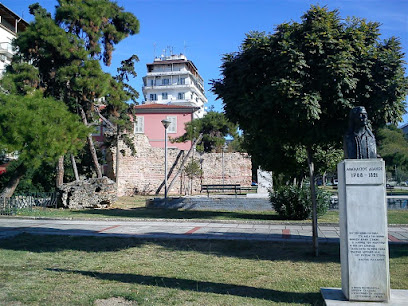
Unmissable attractions to see
Alexander the Great Garden
A scenic waterfront park in Thessaloniki honoring Alexander the Great, offering a tranquil escape with historical monuments and sea views.
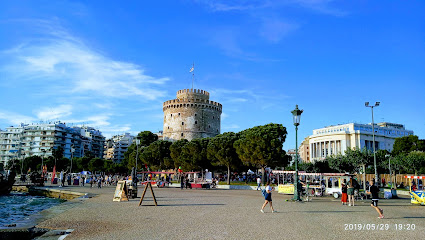
Agia Sofia Square
Discover Agia Sofia Square in Thessaloniki: A vibrant blend of Byzantine history, stunning architecture, and modern city life.
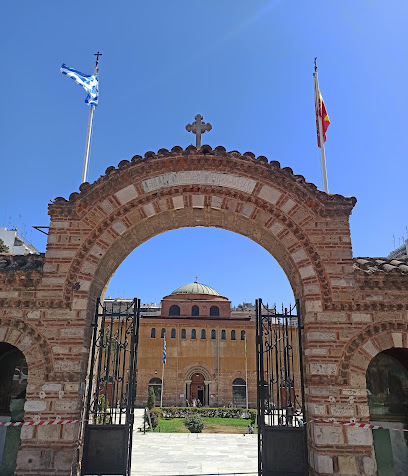
Atatürk Museum
Explore the birthplace of Mustafa Kemal Atatürk, founder of modern Turkey, in this historic Thessaloniki museum.
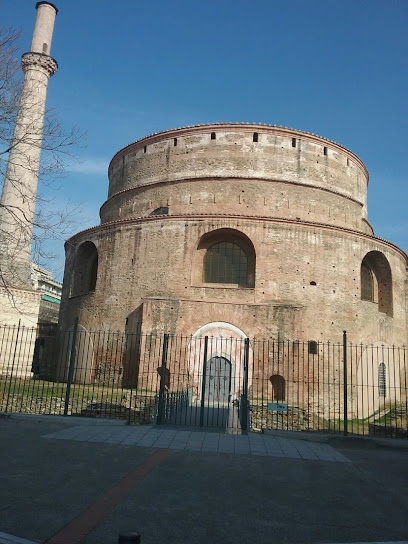
Roman Forum of Thessaloniki
Uncover the heart of ancient Thessaloniki at the Roman Forum, where history comes alive in the city's vibrant center.
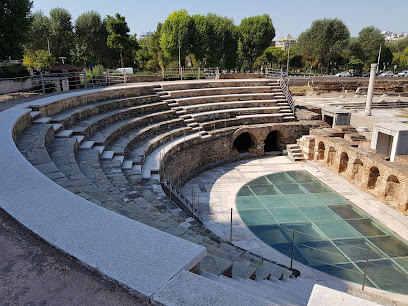
Rotunda
Explore Thessaloniki's iconic Rotunda: a journey through Roman, Byzantine, and Ottoman history, adorned with stunning mosaics.
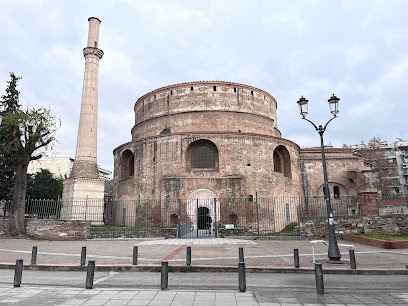
Acropolis of Thessaloniki
Explore Thessaloniki's ancient Acropolis: a historic landmark with stunning views, rich Byzantine and Ottoman heritage, and the imposing Eptapyrgio fortress.
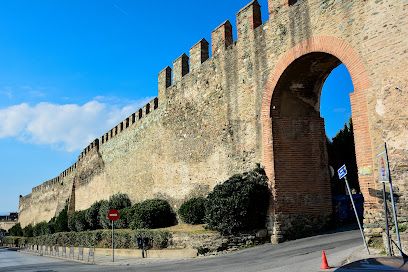
Statue of Eleftherios Venizelos
A tribute to a visionary leader, the Statue of Eleftherios Venizelos stands as a symbol of Greek national pride and historical significance in Thessaloniki.
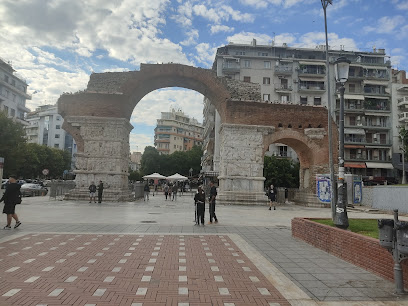
East Byzantine Walls of Thessaloniki
Explore Thessaloniki's East Byzantine Walls: a journey through history, offering stunning views and a glimpse into the city's ancient defenses.
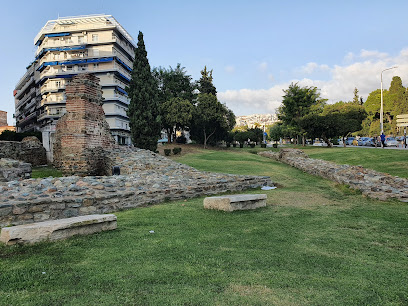
Essential places to dine
Kitchen Bar
Discover exquisite seafood and delightful local dishes at Kitchen Bar, Thessaloniki’s premier waterfront dining destination.
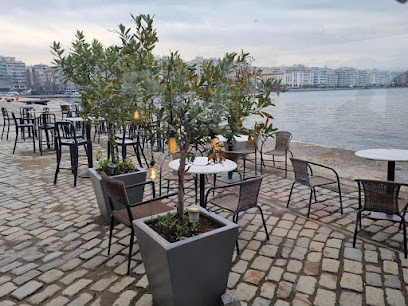
The Rouga
Experience authentic Greek cuisine at The Rouga in Thessaloniki—where tradition meets modern flavor in every dish.
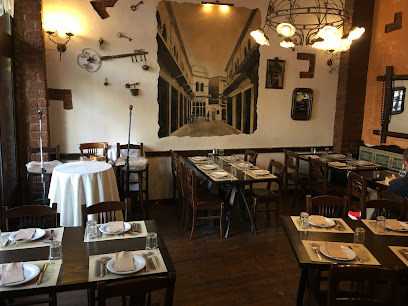
The Greek
Experience authentic Mediterranean cuisine at The Greek in Thessaloniki - where tradition meets flavor in every dish.
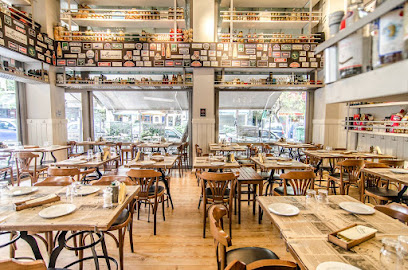
Mamalouka
Experience authentic Greek flavors at Mamalouka in Thessaloniki—where tradition meets taste in every dish.
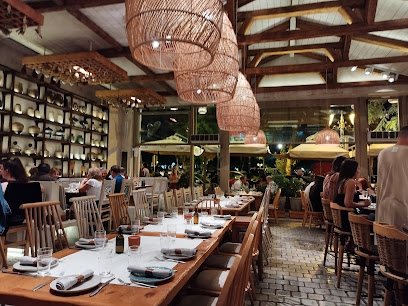
Wall by Wall
Discover authentic Mediterranean flavors at Wall by Wall – where every dish tells a story.
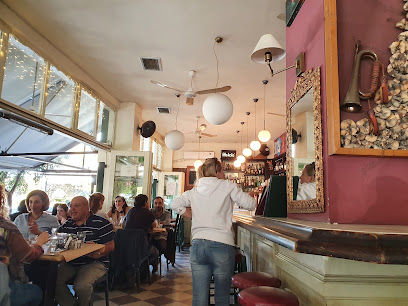
Charoupi
Experience authentic Greek cuisine at Charoupi in Thessaloniki - where tradition meets modern dining.
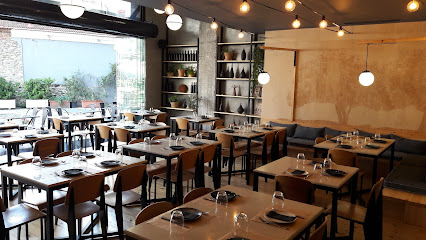
Loupino
Discover Loupino in Thessaloniki: where Mediterranean flavors meet vibrant nightlife in an unforgettable dining experience.
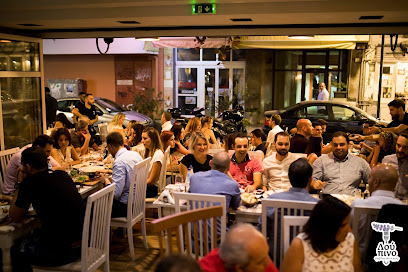
Kanoula
Savor the essence of Greece at Kanoula – Thessaloniki's premier destination for authentic Greek cuisine and warm hospitality.
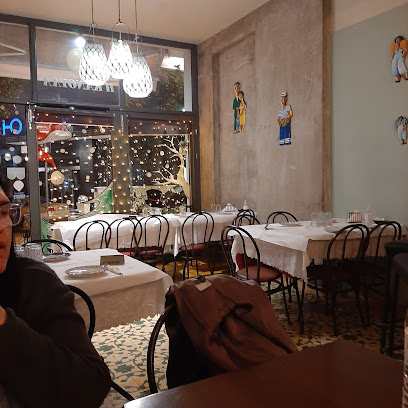
Ouzerie Lola
Experience authentic Greek flavors at Ouzerie Lola in Thessaloniki, where small plates bring people together over delightful meals.
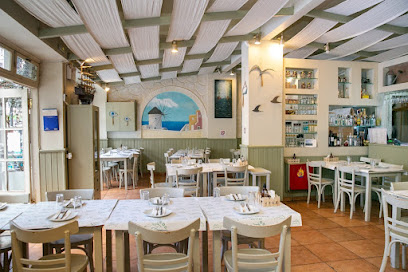
Oinohoos
Experience traditional Greek flavors at Oinohoos in Thessaloniki—where every dish tells a story.
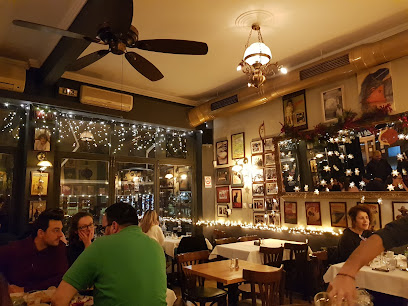
Markets, malls and hidden boutiques
One Salonica Outlet Mall
Discover unbeatable deals and a vibrant shopping experience at One Salonica Outlet Mall in Thessaloniki, where style meets savings.
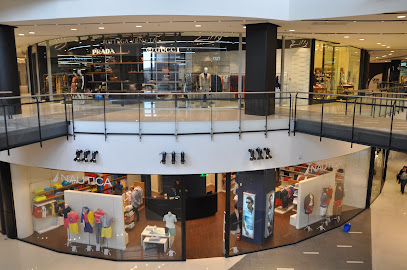
notos Θεσσαλονίκη (Thessaloniki)
Discover the vibrant shopping paradise of Notos in Thessaloniki, where fashion meets local flair in a stunning department store experience.
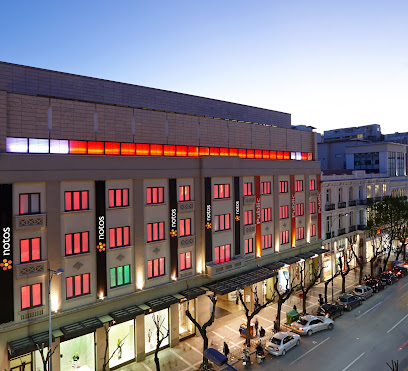
GREEK ART SOUVENIRS VAMVOUKAKIS
Explore the heart of Greek culture at Vamvoukas, a souvenir store brimming with handcrafted art and unique gifts that embody the spirit of Greece.
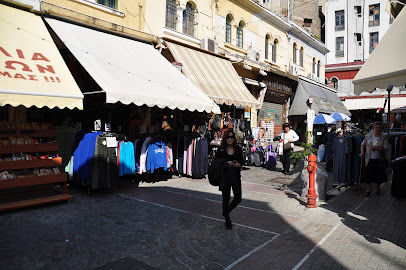
Brigitte Boutique
Discover chic fashion at Brigitte Boutique in Thessaloniki, where elegance meets contemporary style for the modern woman.
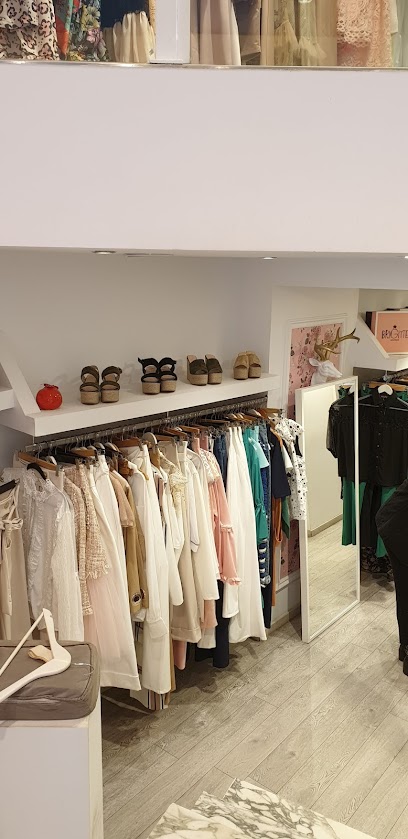
I Love Thessaloniki
Discover unique treasures at I Love Thessaloniki, your go-to souvenir store for authentic keepsakes and local crafts.
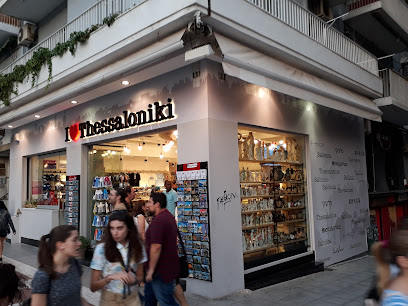
NU MODERN GREEK
Discover the best of Greek craftsmanship at NU MODERN GREEK in Thessaloniki, offering unique souvenirs and modern designs that celebrate tradition.
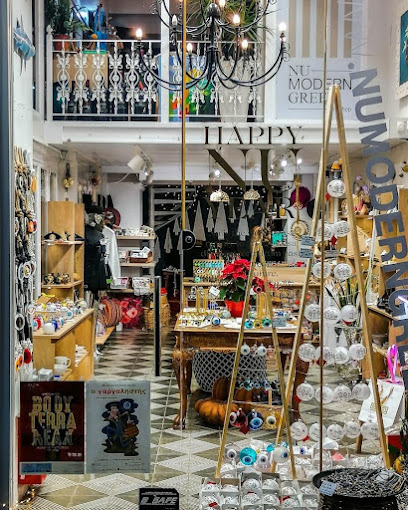
Vaudeville Room
Discover eclectic fashion at Vaudeville Room, Thessaloniki's coolest clothing store showcasing local designers and unique styles.
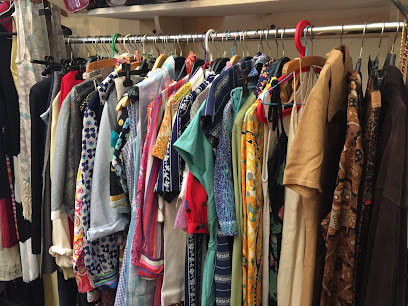
Miss Souvenir -Η ΜΠΟΥΤΙΚ ΤΩΝ ΦΙΛΑΘΛΩΝ - FANS CORNER
Discover unique sports memorabilia and authentic Greek souvenirs at Miss Souvenir in Thessaloniki, the ultimate fan's corner!
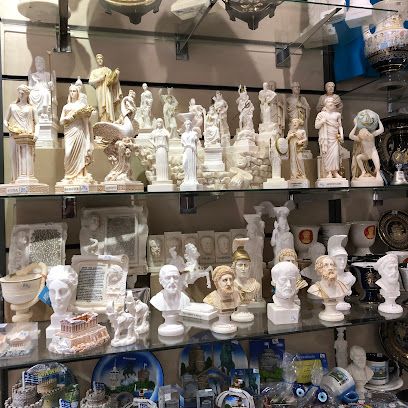
Onarion - The Greek Concept Store
Explore the essence of Greece at Onarion, Thessaloniki's premier destination for unique gifts, bags, and jewelry that celebrate local craftsmanship.
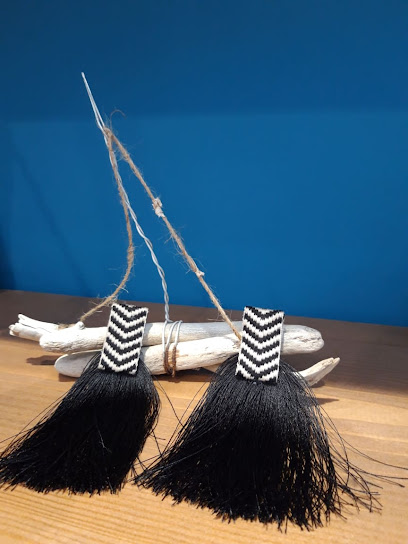
Local Experience
Explore Thessaloniki's Local Experience Souvenir Store for unique gifts and local treasures that capture the essence of this vibrant city.
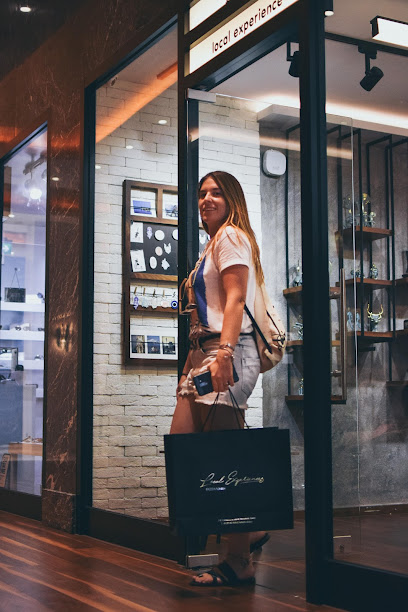
Essential bars & hidden hideouts
CHILAI wine - restaurant - bar
Discover CHILAI, Thessaloniki's vibrant wine bar and café, offering exquisite wines and delicious culinary delights in a charming atmosphere.
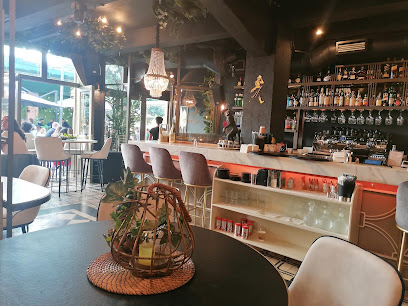
BUTLER
Discover Butler, a vibrant bar and coffee shop in Thessaloniki, where local flavor meets a lively atmosphere for an unforgettable experience.
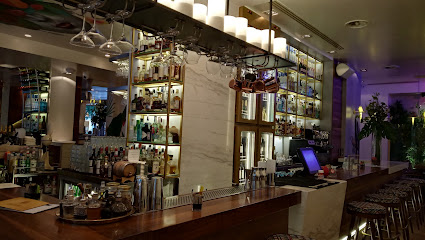
Castra- All Day Terrace Bar
Experience the vibrant nightlife of Thessaloniki at Castra, an all-day terrace bar offering delicious cocktails, coffee, and stunning views.
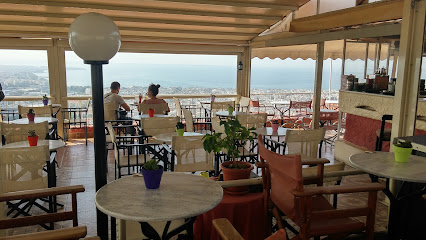
Pulp
Experience the vibrant nightlife and exquisite drinks at Pulp, Thessaloniki's top bar for locals and tourists alike.
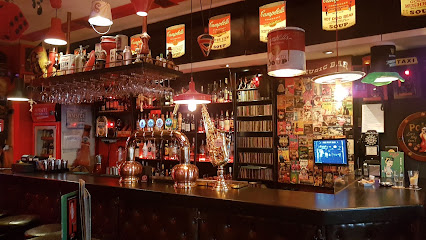
Sherlock Bar SKG
Discover the vibrant nightlife at Sherlock Bar SKG, offering a unique atmosphere, creative cocktails, and live music in the heart of Thessaloniki.
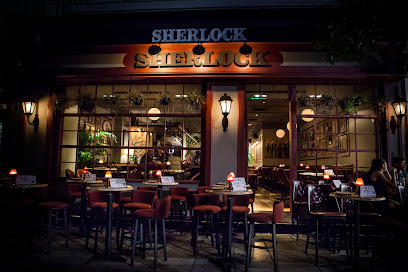
Vogatsikou 3
Discover the vibrant cocktail scene at Vogatsikou 3 in Thessaloniki, where innovative drinks and a lively atmosphere await every visitor.
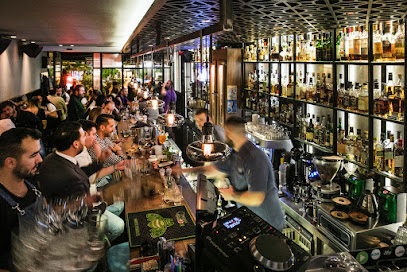
On The Road
Discover the vibrant atmosphere of On The Road in Thessaloniki, where delightful drinks and local culture come together in a picturesque setting.
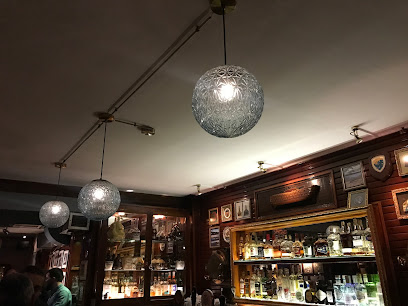
BOCA music bar
Experience the vibrant nightlife at BOCA Music Bar in Thessaloniki, where great music and cocktails come together for an unforgettable evening.
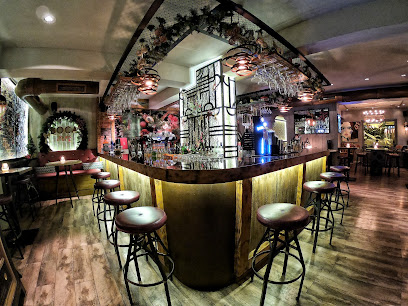
Υφήλιος Bar Nationale
Discover the lively Υφήλιος Bar Nationale in Thessaloniki, where cocktails and coffee create the perfect blend for any occasion.
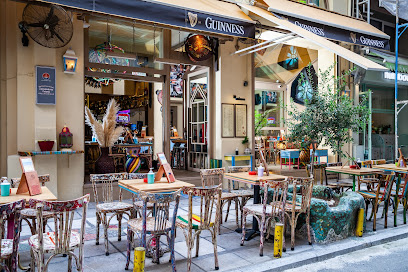
Arrogant Bar
Discover the vibrant nightlife of Thessaloniki at Arrogant Bar, where exquisite cocktails and a lively atmosphere await.
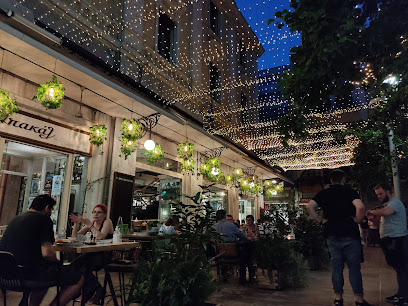
Local Phrases
-
- HelloΓεια σας
[Yia sas] - GoodbyeΑντίο
[Adio] - YesΝαι
[Ne] - NoΌχι
[Ohi] - Please/You're welcomeΠαρακαλώ
[Parakalo] - Thank youΕυχαριστώ
[Efharisto] - Excuse me/SorryΣυγνώμη
[Signomi] - How are you?Τι κάνετε;
[Ti kanete?] - Fine. And you?Καλά. Εσείς;
[Kala. Esis?] - Do you speak English?Μιλάτε αγγλικά;
[Milate anglika?] - I don't understandΔεν καταλαβαίνω
[Den katalaveno]
- HelloΓεια σας
-
- I'd like to see the menu, pleaseΘα ήθελα να δω το μενού, παρακαλώ
[Tha ithela na do to menou, parakalo] - I don't eat meatΔεν τρώω κρέας
[Den troo kreas] - Cheers!ΥΓΕΙΑ!
[Yia!] - I would like to pay, pleaseΘα ήθελα να πληρώσω, παρακαλώ
[Tha ithela na plirosso, parakalo]
- I'd like to see the menu, pleaseΘα ήθελα να δω το μενού, παρακαλώ
-
- Help!Βοήθεια!
[Voithia!] - Go away!Φύγε!
[Fiye!] - Call the Police!Καλέστε την Αστυνομία!
[Kaleste tin Astinomia!] - Call a doctor!Καλέστε για γιατρό!
[Kaleste ya yatro!] - I'm lostΈχω χαθεί
[Eho hathi] - I'm illΕίμαι άρρωστος
[Eme arrastos]
- Help!Βοήθεια!
-
- I'd like to buy...Θα ήθελα να αγοράσω...
[Tha ithela na agoraso...] - I'm just lookingΑπλά κοιτάω
[Apla kito] - How much is it?Πόσο κοστίζει;
[Poso kostizi?] - That's too expensiveΑυτό είναι πολύ ακριβό
[Afto ine poli akribo] - Can you lower the price?Μπορείτε να μειώσετε την τιμή;
[Borite na meioste tin timi?]
- I'd like to buy...Θα ήθελα να αγοράσω...
-
- What time is it?Τι ώρα είναι;
[Ti ora ine?] - It's one o'clockΕίναι μία ώρα
[Ine mia ora] - Half past (10)Μισή (10)
[Misi (10)] - MorningΠρωί
[Proi] - AfternoonΑπόγευμα
[Apoyevma] - EveningΒράδυ
[Vradi] - YesterdayΧθες
[Hthes] - TodayΣήμερα
[Simera] - TomorrowΑύριο
[Aurio] - 1Ένα
[Ena] - 2Δύο
[Dio] - 3Τρία
[Tria] - 4Τέσσερα
[Tessera] - 5Πέντε
[Pente] - 6Έξι
[Exi] - 7Επτά
[Epta] - 8Οκτώ
[Okto] - 9Εννιά
[Ennia] - 10Δέκα
[Deka]
- What time is it?Τι ώρα είναι;
-
- Where's a/the...?Πού είναι ένα/το...;
[Pou ine ena/to...?] - What's the address?Ποια είναι η διεύθυνση;
[Pia ine i diefthinsi?] - Can you show me (on the map)?Μπορείτε να μου δείξετε (στο χάρτη);
[Borite na mou dixete (sto charti)?] - When's the next (bus)?Πότε είναι το επόμενο (λεωφορείο);
[Pote ine to epomeno (leoforeio)?] - A ticket (to ....)Ένα εισιτήριο (για ....)
[Ena isitirio (ya ....)]
- Where's a/the...?Πού είναι ένα/το...;
History of Rotunda
-
The Rotunda of Galerius, originally built as a mausoleum for Emperor Galerius in the early 4th century AD, is one of Thessaloniki's most significant historical landmarks. Its massive structure, originally a circular building, showcases the architectural innovations of the time and was later converted into a church and then a mosque during the Ottoman period.
-
Following its initial use as a mausoleum, the Rotunda was transformed into the Church of St. George in the 5th century. This change marked a significant shift in the religious landscape of Thessaloniki, reflecting the rise of Christianity in the region. The beautiful mosaics inside the Rotunda, dating from the Byzantine period, further illustrate the importance of this site in the spiritual and cultural life of the city.
-
In the 15th century, the Rotunda was converted into a mosque known as the Mosque of Sultan Murad II. This transition showcases the multicultural history of Thessaloniki, where various religious influences coexisted. The Rotunda served as a prominent Islamic center until the late 19th century when it was returned to its Christian roots.
-
During World War II, Thessaloniki and its neighborhoods, including Rotunda, faced significant upheaval. The city was occupied by Axis forces, and the Rotunda, like many other historical sites, suffered from neglect. After the war, efforts to restore and preserve this monumental building began, highlighting its importance to the city's cultural heritage.
-
Today, the Rotunda stands not only as a remarkable architectural achievement but also as a symbol of Thessaloniki's rich and diverse history. It was declared a UNESCO World Heritage Site, and ongoing restoration efforts aim to preserve its intricate mosaics and structure. The Rotunda attracts visitors from around the world, serving as a testament to the city's historical resilience and cultural evolution.
Rotunda Essentials
-
Rotunda is centrally located in Thessaloniki, making it easily accessible from various neighborhoods. You can reach Rotunda by taking the local bus services (lines 3, 5, 6, and 8) that stop nearby. If you're coming from the train station, a taxi ride will take about 10 minutes. For those arriving at the airport, the most convenient option is to take a taxi or use the shuttle bus service to the city center, and then transfer to a local bus or taxi to reach Rotunda.
-
Rotunda is a compact area, making it easy to explore on foot. The public transport options include buses that connect with other parts of the city. For a more leisurely experience, consider renting a bicycle, as Thessaloniki has bike lanes and paths. Taxis and ride-sharing services are also available for longer distances or late-night travel.
-
Rotunda is generally a safe neighborhood for tourists. However, like any urban area, it's wise to stay vigilant. Avoid poorly lit streets at night and be cautious of your belongings in crowded areas. While there are no specific high-crime areas targeting tourists, the areas around the bus station and certain parts of Ano Poli may require extra caution.
-
In case of emergencies, dial 112 for police, fire, or medical assistance. For non-urgent medical issues, local pharmacies are available. It's advisable to have travel insurance that covers emergencies. The nearest hospital is the Hippokratio Hospital, located a short distance from Rotunda.
-
Fashion: Do dress modestly, especially when visiting religious sites like the nearby churches. Don't wear overly casual or revealing clothing. Religion: Do respect local customs and traditions. Always be mindful of behavior in sacred spaces. Public Transport: Do be polite and give your seat to the elderly or pregnant women. Don't eat or drink on public transport. Greetings: Do greet with a friendly smile and a handshake. Don't forget to make eye contact. Eating & Drinking: Do try traditional Greek dishes at local taverns. Don’t refuse food or drink when offered, as it may be considered rude.
-
To experience Rotunda like a local, visit the nearby markets for fresh produce and local delicacies. Engage with shopkeepers and locals for a taste of authentic Thessaloniki life. Don't miss the chance to enjoy a coffee in one of the small cafes around Rotunda, where you can soak in the atmosphere. Consider visiting during local festivals or events for an immersive cultural experience.
Nearby Cities to Rotunda
-
Things To Do in Katerini
-
Things To Do in Serres
-
Things To Do in Larissa
-
Things To Do in Kavala
-
Things To Do in Volos
-
Things To Do in Meteora
-
Things To Do in Pogradec
-
Things To Do in Lamia
-
Things To Do in Ioannina
-
Things To Do in Gjilan
-
Things To Do in Delphi
-
Things To Do in Ferizaj
-
Things To Do in Kamenica
-
Things To Do in Alexandroupoli
-
Things To Do in Gjirokastër








